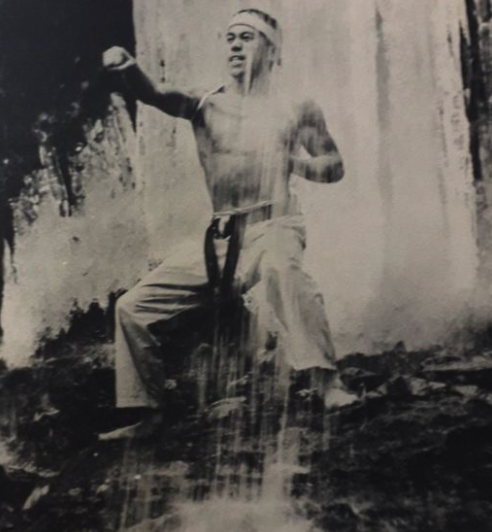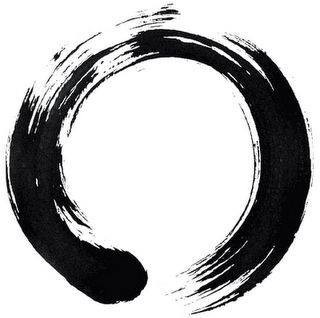Do you suffer for your own growth and improvement? On purpose no less?
If you research the term you may find two directions it can take you in.
I’m very interested to see what you think and how you just may be practicing it already or if it seems like a useful concept to you.
Historically speaking Shugyō is a martial quest of the Samurai. One may travel the lands and practice your profession free form protection of your clan or Daimyo (leader/boss). This is considered a true test because to truthfully test your skills in a real-world scenario you will come to know victory or defeat and what you are made of.
The more common use of the concept and one we most readily see in Martial Arts training or Budō is when it comes to a major training event or even a rank test or something like that. If you do CrossFit you likely have experienced Shugyō. A training event is simple in appearance, strict or without luxury of some kind and severe in nature. Whether that be a long endurance event much like running a marathon or something shorter but intense like a CrossFit Hero Workout such as ‘Murph’. You understand what it is to suffer for your own greater good and for a higher cause than just self improvement.
In Australia the Native Aboriginal Population historically has practiced what’s known as a Walkabout, which is a rite of passage of self-discovery involving a young person to go live on their own in the wilderness for 3 to 6 months at a time.
Another way to think about this is to consider it as; “conducting oneself in a way that inspires mastery”. While most times Shugyō is experienced physically it can also be through writing or creating or some other form of extended practice or study or work.
When we train or experience life in this way, within a severe scenario, we eventually place our ego and all our self-focused baggage at it’s core and through this experience or lens we can come to see it for what it is. We set ourselves up for failure but keep working through the training and learn that through enduring and perseverance we can accomplish much.
We are setting up conflict between our present experiences and our future self.
Mark Divine’s video on Shugyo — https://youtu.be/4A7AHyirIpA
Consider what is in your personal practice and are you committed to daily growth in order to tap into your full potential and serve most powerfully? Stay focused ?
*Those of you who have done something like the workout Murph may know the feeling or if you have a set daily routine you like to repeat may get to it by another avenue.
Mastery is a constant state of ‘becoming’. There is no ‘there’ there. Rather, mastery is a commitment to doing certain things every day that will evolve you in a positive direction.
True Shugyō is not just about putting yourself in a position to experience pain or to torture yourself. It is more about keeping your training dedicated, honest and sincere.
We use Shugyō to accomplish this by utilizing a crucible type event or involved training scenario so we can better simplify ourselves, stripping away the baggage and unnecessary ego — truly enabling us to get those breakthroughs and grow from a position of strength and not fear.
When you exhaust yourself to the point of physical failure and fatigue there’s not much left to worry about outside things.
This is where people often misunderstand extreme physical events such as 50k Ultra Running, Spartan Races or a thing like the Murph Workout.
David Goggins is well known for his extreme lifestyle, he’s been a special forces operator in just about every branch the military offers. But he will tell you not to misunderstand him, he does the things he does not so he can puff out his chest and say he’s a tough-guy, not at all, he does the things he does so that he can raise the bar each time he completes something. Each time building upon the last so that he is now at what looks to be a superhuman example of a human being.
He may or may not know it but he is a practitioner of Shugyō.
‘Obstacles do not block the path. They are the path.’
Zen Proverb
Waterfall Training & The Yamabushi
Yamabushi are mountain ascetics or monks in Japan that focus on feats of physical endurance to help them attain enlightenment. One very well know and popular thing the do is to meditate under ice cold waterfalls.

I have had the opportunity to mediate under a freezing cold waterfall myself.
During my Second Degree Blackbelt Test, in the middle of winter in January, in the Mountains of North Carolina my Sensei and I (along with a couple of other students) climbed down from the visitor’s overlook and stood under a freezing waterfall that was something like 100 feet high above us.
It was terrifying and exhilarating all at once. As I mentally prepared myself for what I was about to do, my mind just went blank, frozen from fear of getting cold. Once under the water, feeling the incredible pressure of it falling off the mountain onto my head and shoulders I felt warm. It was of course freezing, but the act of overcoming my fear, focusing on my breathing and sharpening my thoughts on something else was mesmerizing.
Taki-Shugyō: The cascade training

Taki-Shugyō is an orthodox practice developed by ascetic monks of Shugendō, a syncretic religion that unites aspects of esoteric Buddhism and Shinto. This practice was later imported into some schools of Karate, such as the Kyokushin style.
The training consists of meditating seated or standing under an icy waterfall for a specified period of time.
Submitting to these severe climatic conditions is intended to not lose concentration and focus, which are put to the test in this rigorous training, where one must seek to disassociate the outside world even in the midst of a strong and icy water current .
The concept of practicing Taki-Shugyō aims to strengthen the power of mind and spirit, putting your persistence and willpower to the test against your greatest limitations and weaknesses.
Taki-Shugyō is seen as a meditative exercise that brings purification and strengthening to the soul.
Lucas Barboza
How about your own training?
Do you practice Shugyō either by accident or on purpose?
Please support our sponsors:
 Use “warriormindset” when you check out. |
 |



0 Comments